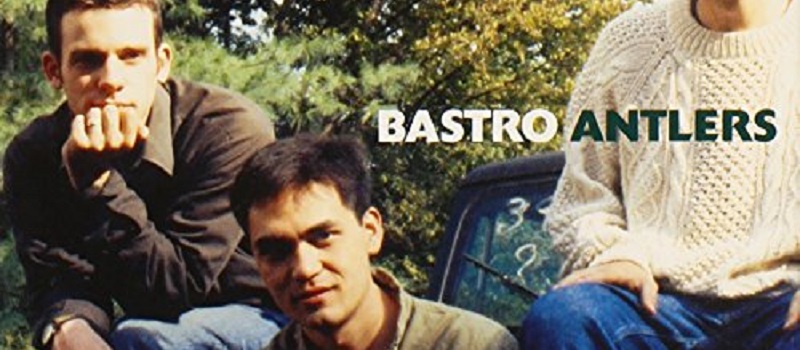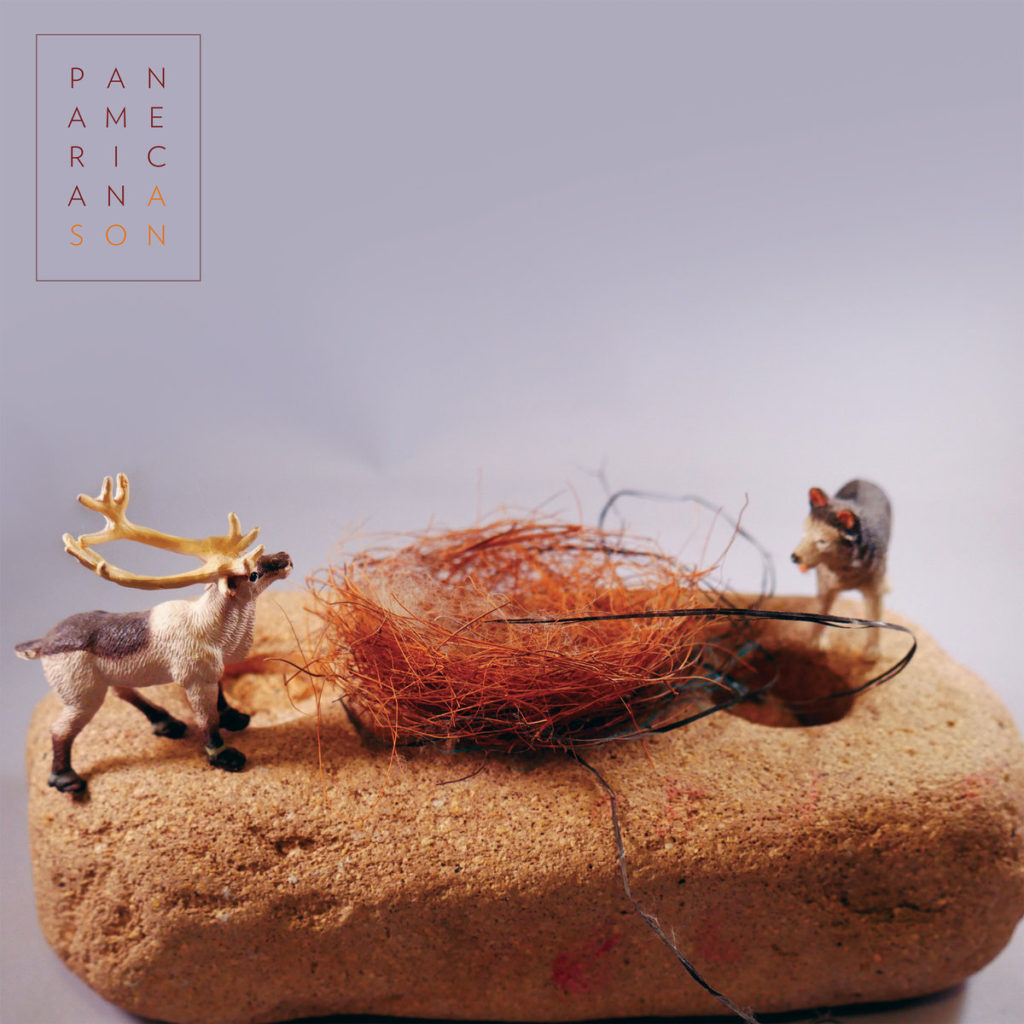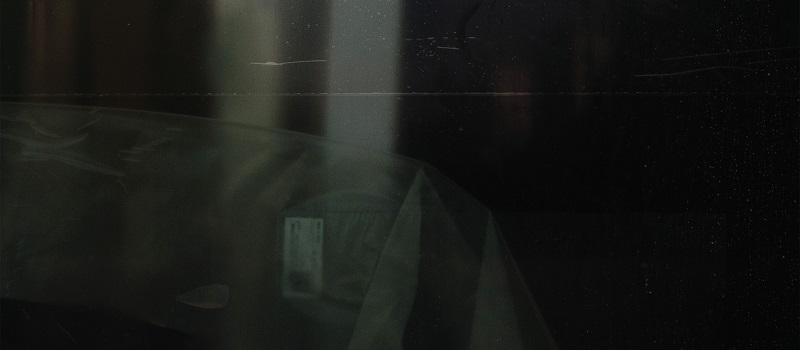Much ink has been spilled, and rightfully so, fawning over David Grubbs’ distinct body of work with post-rock avant-gardists Gastr del Sol, as a solo musician in his own right, and in his youth as part of Louisville hardcore legends Squirrel Bait. But the same critical attention, at least in recent years, has seemed to evade Bastro, the bombastic post-punk trio he formed in the late-1980s with John McEntire and Squirrel Bait’s Clark Johnson (and then developed with McEntire and future Tortoise alum Bundy K. Brown).
While the group released a couple of critically under-appreciated full-lengths for Homestead Records — not to mention an EP, a handful of singles, and such — most seemed to view it merely as a footnote or a placeholder, a lesser project between greater, more substantive works. Writing off the band as a between-takes affair, though, not only overlooks the obvious influence Bastro played in Grubbs’, McEntire’s, and Brown’s development as musicians but also the incredibly vitality of the group’s recorded output.
This year, Grubbs himself looked to remedy this, reissuing Bastro’s blistering debut, Diapo Guapo, and its more atmospheric sophomore outing, Sings the Troubled Beast, on his own Blue Chopsticks imprint. The real treat for those following the group’s storyline, though, was the appearance of Antlers, a collection of live, instrumental performances recorded after Sings the Troubled Beast but before the band dissolved and “reformed” as Gastr Del Sol.
Need evidence that a little obscure indie-rock history can be enticing? Well, here you have it. One of the best new records of 2005 is a seven-song live offering captured on audio tape between July and October 1991.
The disc, which is carefully assembled with liner notes from Grubbs, McEntire, and Brown, strives to paint a portrait of growing pains and musical transitions, of answering questions on how a group of 20-somethings shifted within five or six years from the Big Black-influenced venom and sonic eruptions of Bastro’s Diablo Guapo to the dreamy acoustics and sometimes-dissonant phantom ruminations of Gastr Del Sol’s The Serpentine Similar. The answer appears to be: gradually. The amazing thing about Antlers as a singular work, though, is that it seems to have a coherent and cohesive core while featuring songs that, in other contexts, could be diametrically opposed.
The record gets moving with a bluesy full-band take on the record’s title track (it would later morph into Serpentine’s “A Watery Kentucky”) but follows it up with the vicious, shotgun-blast refrains and jagged, breakneck-speed guitar-and-bass attack of the incredible “Hirscheneck,” one of the record’s best tracks. The pummeling, stop-on-a-dime assault of “Sleepy Taste” (which later appeared in acoustic form on a Teenbeat comp) is placed two songs over from the almost poppy guitar twang of “Educated Fool.” (See Grubbs’ “Fool Summons Train”). Even the songs themselves seem aware of this duality — the album-closing “Glistery” (later Gastr’s “Dictionary of Handwriting”) features throttling choruses alongside mysterious but quiet little interludes driven forward by subtle bass figures and palm-muted guitar.
(The disc also includes Quicktime videos of live performances from 1991 in Holland and Germany.)
So, why does it all work? Well, for one, Grubbs is a guitarist and frontman who’s never prone to fall on convention and this lends even the so-called “straight-forward” big-rock refrains a subversive and often-virtuosic quality. McEntire and Brown do more than their fair share of holding the bottom end together, exhibiting a chemistry that anchors Grubbs’ guitar work as much as it proves they were a huge part of what gave Bastro its early punch and, later, its tense, roiling energy. In the record’s quieter moments, you can even hear hints of the subdued and layered rhythms Brown and McEntire developed with a jazzier edge on Tortoise.
Above all, though, the record works precisely because it’s a bridge. This is the long-lost record that shows larger-than-single-bands musicians like Grubbs, McEntire, and Brown moving from the Touch and Go-tinged releases of the mid- to late-1980s to the alarmingly inventive and mature work they released with Drag City and Thrill Jockey and others in the early- to mid-1990s.
In short, you could call this a blueprint for the foundation of post-rock, and, for some, that’s something that alone is worth the price of admission to hear.
Grubbs, McEntire, and Brown all play down the historical significance, however muted or assumed, of the band’s work on Antlers, writing about the 1991 live sets instead as a kind of frozen moment of solidarity and creative vitality. “I still find these performances to be unique and compelling,” writes Brown, who left Gastr Del Sol shortly after Serpentine Similar, recorded with Tortoise and Seam, and constructed pseudo-solo work with Directions in Music, Pullman, and others.
“Out of all the scenarios in which I’ve worked with David and Bundy, I always instinctively knew that what the three of us were able to accomplish onstage with this material was exceptional,” writes McEntire, who in addition to performing with Gastr Del Sol, Tortoise, The Sea and Cake, and The For Carnation, has a resume too lengthy to reproduce here.
Grubbs’ insights are the most steeped in context, both sonic and historical, but he also tackles the work more on personal than communal levels. “These are among (Bastro’s) final recordings, but they sound less like death throes than considered pauses and chargings onward,” he writes. “We knew how (to) play at full volume … after Bastro, it was a revelation to hear an unamplified instrument.”
Antlers proves that, before the unamplified instruments began dominating Grubbs’ and others’ work, there were more than enough bursts of revelation to go around. – Delusions of Adequacy, April 20, 2005




